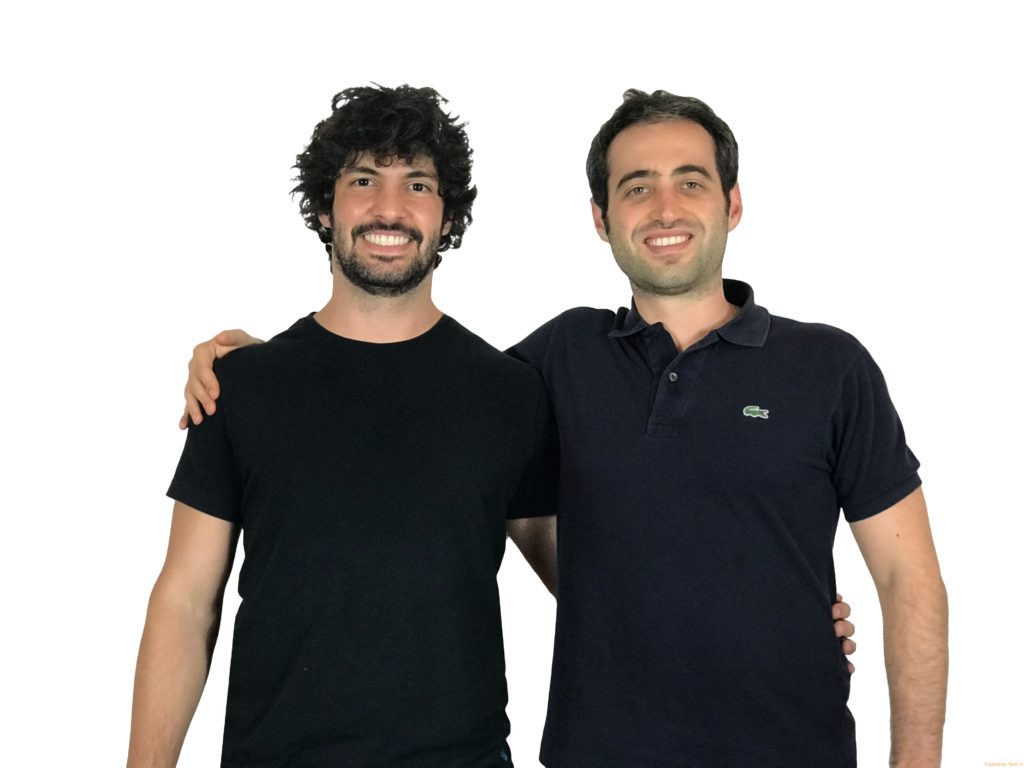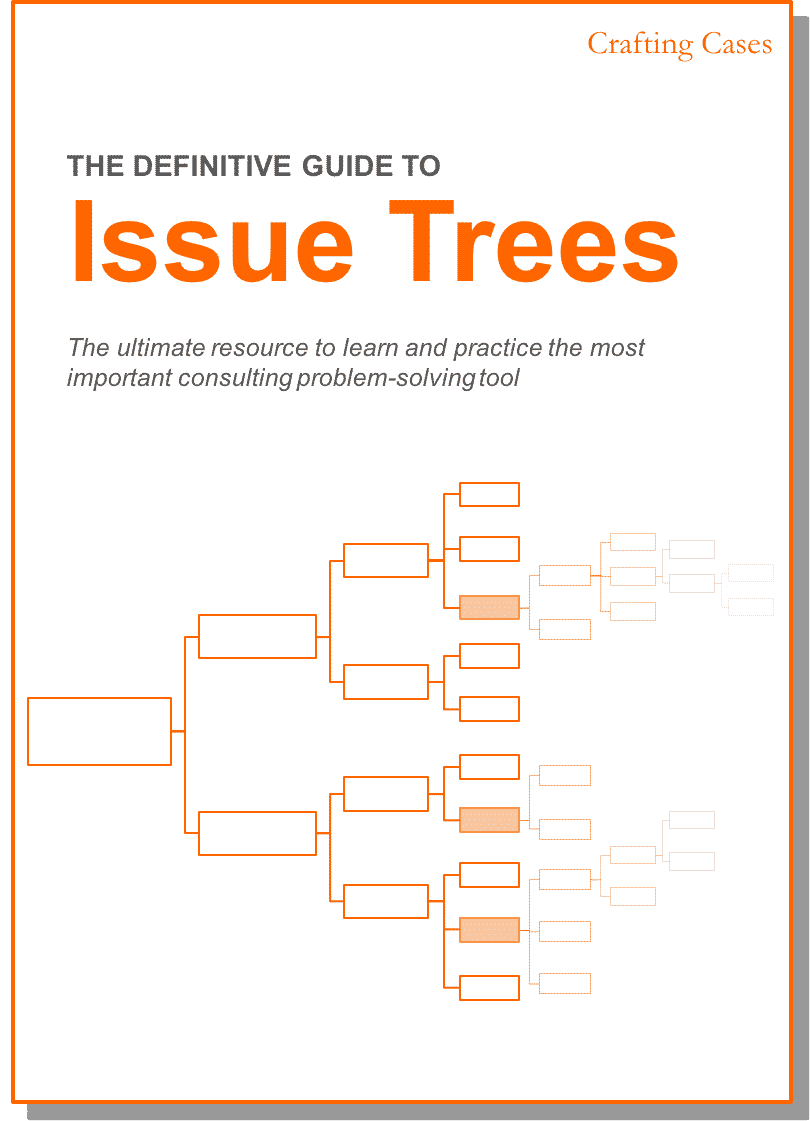Why do 97% of candidates get rejected from McKinsey, BCG and Bain?
(Hint: they haven’t learned how to think and speak like real MBB consultants)
Memorizing frameworks and lists of questions may help you get started
on your case interviews, but they eventually drive your offers away.
Join our free 7-day course to go beyond the basics and learn how to answer
ANY case interview question (even of case types and industries you haven’t seen before).
If you prepare like the average candidate, you will get average results
Most candidates start their case interview preparation following trusted resources.
You’ve all heard of them: Case in Point, Victor Cheng, etc.
They work well when you’re starting out.
We’ve used them ourselves back when we were preparing.
The problem? They can only get you so far…
The problem with traditional case interview approaches
We’ve met tons of smart people doing all they could to be top performers…
- They've read every book on the topic
- They've spent hours and hours learning different frameworks
- They've practiced dozens (even hundreds) of cases
So, why weren’t they performing well enough to get offers from top consulting firms yet?
Here’s why:
- While basic resources cover the basics well, they never teach you how to think like a consultant
- Interviewers are assessing nuanced thought patterns that aren't taught in those books
- It's like trying to learn calculus from a basic math book - helpful, but not enough for the whole journey
There are four key issues with traditional approaches...
1
They show you many frameworks to memorize, but never teach you how to build a custom structure for each case, as real management consultants do.
2
They give case examples that fit their methods perfectly, but ignore those that don’t (e.g. Public Sector) and pretend they’re uncommon in real interviews.
3
Even though they used to help candidates perform well in the past (when everyone was less prepared), they’ve become commoditized and can only get you to average nowadays.
4
They expose you to a lot of concepts and buzzwords (MECE, 80/20, Hypothesis), but never teach you the systems to apply them in a cohesive, systematic way in your cases.
Here's how we're different:
No more learning plateaus. You’ll get a structured method to learn case interviews. Much better than “just doing more cases” and hoping for the best.
Tools and techniques straight from the consulting job. Instead of arbitrary “tips and tricks”, we teach techniques that come from the real job and work not only in case interviews, but also with real clients.
Eliminate guesswork with out step-by-step systems. We teach you how to be MECE, how to build your own frameworks and everything else you need in a step-by-step way.
Tons of in-depth, well explained examples. This helps you go beyond “conceptual knowledge” and understand the nuances of when and how to apply what you’ve learned.
Insights from your interviewer’s mind. Learn not only what to do, but also why you should do it. You’ll grasp how interviewers think and feel like you could read their minds.
Learn by doing. Every time we teach you a new tactic or technique, we also guide you through the application of that into a case problem so you can internalize what you learn.
Who are we?
We’re Bruno and Julio. We used to be consultants at McKinsey and Bain.
We went through the very same preparation process you’re going through right now. As we studied for our cases, we were often frustrated with the lack of depth of all the case prep content we found online.
We always felt like a piece of the puzzle was missing.

After we were out, we became case interview coaches, and felt that frustration crawl up our skins again. Many of our clients found it difficult to find good prep materials and we often had nowhere to point them to when they needed to learn a specific concept.
After coaching about 200 candidates over thousands of coaching sessions, we decided to do something about it. Combining our experience as candidates, consultants and coaches, we create the types of materials we wish existed back when we were preparing.
What other candidates say...
Oh man, how mistaken I was!
Now, I can confidently tell that what I haven’t learned in one year and a half using other materials; I did in a month with Bruno and Julio. How was that possible? Because they taught me to think. They taught really well the fundamentals."
Read more...

CraftingCases seems to have found a way to minimize this agony faced by many and teaches efficient practice routines to improve in your cases and even help you start out from scratch. The result of this training was an offer from BCG, even though I could only practice just under two hours per day due to my job."
Read more...
And it’s funny that everyone I recommended CraftingCases to was already using it. I think you already know that, but I noticed clearly that among the best people I practiced with, all of them were already using CraftingCases.”
Read more...

Yet, with your website I still learned so much new that I'm even close to readapt my entire approach. It's amazing what you guys are doing, really. I feel it's giving me the last push I needed, that one edge over the other candidates that will hopefully guarantee me an offer. I can't thank you enough, you guys are doing amazing work. IMO, your content is probably the most helpful and thorough one I've seen these 3 months."
What are you waiting for?
to structure and answer your case interviews questions
like a real McKinsey, BCG or Bain consultant
Our best articles
The Definitive Guide to Issue Trees
This is the ultimate resource to learn how to build Issue Trees, you’ll learn:
- The 3 best techniques to build Issue Trees
- The 6 principles your Issue Trees must incorporate
- Examples, best practices and common mistakes
- 4 types of practicing drills you can use to internalize thinking with Issue Trees
If you’ve been trying to learn Issue Trees, look no further. Read the guide here.
The 9 VERY BEST case interview examples from the web, carefully curated, reviewed and commented
Not having to watch random case interview example videos will save you up to 20 hours of practice AND will also steer you away from the (many) unrealistic, even misleading examples out there.

The 5 Ways to be MECE in Case Interviews
Every rookie case interviewer we’ve met mentions they wish they could improve on one of these three things before their interviews: To know how to start any case, no matter how uncommon (maybe not with the best structure, but at

The overpreparation myth
To prepare or not to prepare, that is the question” – Case Interview Hamlet Back when I was a candidate I constantly feared I was preparing too much. What a strange thing to fear, isn’t it? I had never felt

The Toothbrush Test: How to measure how insightful your structures are
I remember back when I was a candidate how much I appreciated good feedback given by other candidates. You know it when you see it: those that point out specifically to what you did wrong, why it wasn’t the best

Three cases per hour: how to harness the power of drills to get both quantity AND quality
What if you could do three cases per hour of practice? And what if these three cases were actual quality practice? “You can’t be serious, Bruno. No one can pull off that many cases per hour. Doing cases is time-consuming, you
